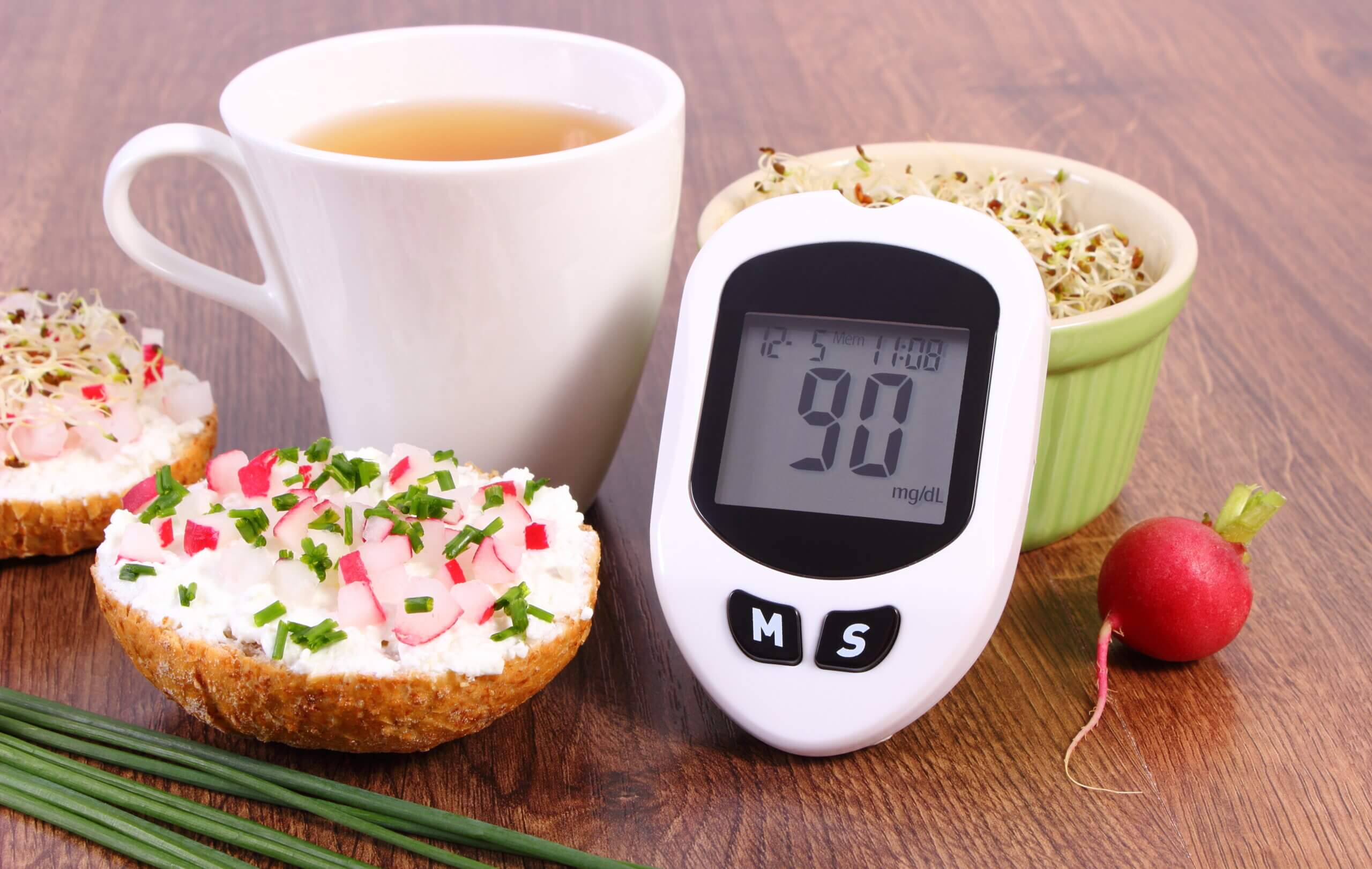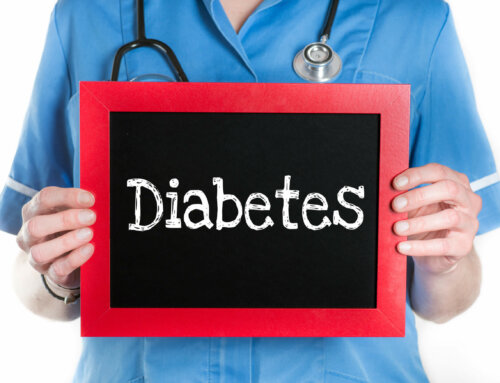Your cousin tells you not to eat any carbohydrates when you get diagnosed with diabetes. Your neighbor says your diabetes medications are making you gain too much weight, so you just stop taking them. You end up with high blood sugars and diabetes complications. Globally, there are 422 million people living with diabetes and by 2050 one in three Americans will have diabetes.
Knowing what is true and not true about diabetes is extremely important. It’s often difficult to differentiate between the The Truth and fiction and sometimes you are not sure who to trust or what to believe.
Here at ADW, we can help you learn the right answers to some common diabetes myths. Learn what is true when you are confronted with this information. You will be better prepared to take care of your diabetes.
1. Myth – I can’t possibly have diabetes because I feel fine and have no symptoms of diabetes
The Truth. Many people with diabetes have no symptoms or have vague symptoms where they don’t suspect diabetes, You can go undiagnosed for years. During this time period, damage can occur to many of your organs including the eyes, nerves, feet, kidneys and heart. After age 45, you should have a yearly physical which includes bloodwork and testing for diabetes.
A simple blood test or combination of blood tests may be the only testing needed to diagnose diabetes. Complications from untreated or under-treated diabetes is still a leading cause of death in the US and around the world.
The common symptoms of diabetes which are frequently missed by the patient themselves include extreme thirst, increased urination, increased hunger, fatigue, blurry vision, slow-healing wounds, unexpected weight loss, unexpected loss of muscle mass, increased chance of urinary tract or vaginal infections, pain, tingling or numbness in the hands or feet.
2. Myth – Eating too much simple sugar as in candy, cookies, pastries and drinking regular soda, can cause diabetes
The Truth. Eating too much sugar can cause weight gain which is “one factor in developing type 2 diabetes” but eating too much sugar by itself does not actually cause diabetes. By eating snacks and drinking empty calories, such as fruit punch and regular soda, the weight gain links you to a higher diabetes risk.
Whether or not you have diabetes, it is still a good idea to cut down on sweets, empty calories and sugary drinks. With diabetes your body can’t produce any or enough insulin or it is not used properly making blood sugars rise. Simple sugar gets into your blood stream much more quickly, since there is no fiber.
3. Myth – If you take diabetes medication pills, insulin or GLP-1 injections, you can eat whatever and whenever you want
The Truth. It is important to continue to take your diabetes medication as directed but it “does not give you freedom to eat anything you want in any amount.” No diabetes medication allows this behavior. Never skip your medications. You still need to follow a proper eating plan which includes reading food labels, not skipping meals, sticking to whole foods as much as possible and watching portion sizes.
4. Myth – You can eat as much fat as you want when you have diabetes since it does not affect your blood sugar levels
The Truth. Since heart disease is the leading cause of death when you have diabetes, you must monitor how much and which types of fat you eat. Eating excess fat calories leads to weight gain and eventually could result in developing diabetes and elevating your blood sugars.
Carbohydrates provide 4 calories per gram. Protein provides 4 calories per gram. Fats provide 9 calories per gram. This is also available on the nutrition fact labels found on food packages. Fatty foods contain the most calories. Limit saturated fats such as red meat, processed meat, whole fat cheese and butter.
Eat low-fat dairy which will help with your cholesterol levels and reduce your heart disease risk. Do include olives, olive oil, nuts, avocados, seeds and nut butters in moderation to include healthy mono-unsaturated fats in your diet.
5. Myth – If it says “sugar-free” you can eat as much as you want when you have diabetes
The Truth. Sugar-free products are often sweetened with sorbitol, a sugar alcohol which is not carbohydrate free or calorie free. Other sugar alcohols include erythritol, mannitol, and xylitol. There are also other types of artificial sweeteners. Eaten in large amounts, sugar alcohols may cause stomach cramps, bloating, nausea and diarrhea.
There remains “controversy about consuming artificial sweeteners” and limiting them is beneficial to your overall health. “Sorbitol may affect your physiology by affecting gut microbiota, which plays a critical role in maintaining good health.”
Sugar free products “have been known to make you feel hungrier” after eating them. Your body responds differently to artificial sweeteners than it does to regular sugar. Artificial sweeteners may lead to “cravings, over-eating, weight gain and alter gut bacteria which plays a role in weight management.”
6. Myth – Eating excess sugar-refined and processed carbohydrates only affects you if you have diabetes
The Truth. Excess empty sugar consumption has been linked to the development and progression of certain cancers including breast, colorectal and pancreatic cancer. It is not known if it is a direct result of weight gain or for another reason. Limiting or eliminating these foods are helpful for everyone.
7. Myth – Nuts and seeds are way too fattening when you have diabetes, and you should always avoid them
The Truth. Nuts and seeds eaten in moderation are an excellent choice for a snack when you have diabetes. They are high in nutrients, protein, fiber, and healthy fats. They will keep you satiated and are low in carbohydrates. They prevent blood sugars from spiking when eaten in combination with a carbohydrate like fruit.
Research shows “consuming 28 grams or one ounce of nuts daily is associated with a 21% reduction in the risk of dying from cancer.” Research published in Circulation Research states “There was a lower risk of heart disease and death in people with type 2 diabetes who ate one ounce of nuts 5 times a week.”
Over 16,000 men and women were studied. The nut types recommended to eat includes pistachios, walnuts, almonds, hazelnuts and Brazil nuts. Hemp seeds, flaxseeds, sesame seeds, chia seeds, pumpkin seeds and sunflower seeds are also high in protein and fiber while being low in carbohydrates. They too contain healthy fats. Portion control is needed since they are also high in calories.
8. Myth – No one in my family ever had diabetes so I will never get it either
The Truth. Family history is just one risk factor for diabetes. There is multiple other risk factors involved. You should know that other diabetes risk factors include:
- Age over 45 years old
- Being overweight or obese
- Having pre-diabetes
- Being inactive or sedentary
- Having gestational diabetes when pregnant
- Having polycystic ovarian syndrome (PCOS)
- Certain ethnicities: Hispanic/Latino, African American, American Indian, Pacific Islands and Alaskan Native.
You may have no family members with diabetes, but you may still eventually get it. Be pro-active and get checked. It is important.
9. Myth – Every overweight or obese person will end up developing diabetes
The Truth. Being overweight or obese is just one risk factor for developing diabetes. Not everyone who is overweight or obese develops diabetes. On the other extreme, people who are of normal weight or even thin may still develop diabetes.
“An individual who is predisposed to diabetes who carries excess weight has more fat cells that are less sensitive to insulin than muscle cells.” It also depends on where you carry the excess weight. When there is more weight in the waist area compared to weight in the thighs or hips, your diabetes risk goes up.
10. Myth – With diabetes, I will always be on a “diabetic diet”
The Truth. There is no specific diabetes diet, and a healthful eating plan should be created to better your overall health. It’s best to work with a Certified Diabetes Care and Education Specialist (CBDCE) or a dietitian to learn the basics of a good, well-rounded eating plan.
Together you can establish something that works specifically for you. Carbohydrates should be eaten from whole grains, vegetables and legumes. Protein foods should be high quality, and visible fat should be removed. Limit saturated and trans-fat foods. Dairy should be included eating a low-fat variety. Beverages should remain sugar- free and calorie-free as much as possible.
Alcohol can be included but sugary mixers and sugary cocktails should be avoided. Add club soda to dilute alcohol. Remember that “Nothing is off limits if quantities are limited. Everything can be included in the overall eating plan.”
11. Myth – As soon as I get control of my diabetes and blood sugars, I can stop taking my diabetes medicine. I can just go on and off depending on the value of my blood sugars
The Truth. Never stop taking your diabetes medicine or any other medication without consulting with your health care provider. Sometimes with weight loss and lifestyle changes you may be able to lower or come off your diabetes medicine, but you are not the one to decide.
Often when patients see their lab work improve and daily blood sugar numbers go down, they just decide to stop taking their diabetes pills. Depending on your specific case and how long you have had diabetes, your physician will help you take the next step when your blood sugars are better controlled.
12. Myth – People who have diabetes always get sick more quickly, more frequently and much more easily – whether it is a cold, flu, respiratory infection, virus or COVID
The Truth. Having diabetes may make it more difficult to control blood sugars when you are sick but your chances of getting sick are not higher just because you have diabetes. Still take precautions whenever possible. Wash your hands frequently. Avoid crowds when possible. These guidelines are generally recommended for everyone.
Having your blood sugars controlled will also help you stay healthier. If you have uncontrolled diabetes and you do get sick, you may be “more at risk to develop a serious illness with added complications.”
13. Myth – You can never eat a regular dessert even on a special occasion when you have diabetes
The Truth. This is a complete myth and people with diabetes are often shamed when they order dessert. Remember that nothing is “off limits” if reserved as a treat. Something special eaten occasionally and in small portions can be factored into your complete meal.
You can simply eliminate one carbohydrate choice and substitute another. Your body does not know if you are eating corn on the cob or a piece of chocolate cake since it “all converts to sugar.” As in life, good decisions, small servings and variety are all important choices when you have diabetes.
14. Myth – Never eat before bedtime when you have diabetes. It just makes your blood sugars go up high in the middle of the night
The Truth. Actually, it can be a beneficial to have a small bedtime snack about 30 minutes prior to bed depending on your diabetes medication and personal situation. Many peoples’ blood sugars spike or drop when they skip a bedtime snack. Ask your health care provider if it is right for you.
If so, consider eating a serving of protein and a high quality serving of a carbohydrate if you choose to eat. Examples include: a slice of whole grain bread with 2 tablespoons of peanut butter or 2-3 whole grain crackers with a slice of low-fat cheese. Skip sugary and starchy snacks especially at night. “Nut butters have healthy fats that have a positive effect on blood sugars in moderation.”
15. Myth – Starting insulin for your diabetes means it suddenly got much worse. What did you do wrong?
The Truth. Diabetes is a progressive disease. That means your pancreas may eventually stop producing enough insulin to lower blood sugars. Even with an exercise regimen, oral medications and maintaining your weight, your diabetes may progress for you to eventually needing insulin.
Your physician may change your diabetes oral medications or put you on GLP-1s before starting you on insulin. When and if you start insulin, do not be frustrated. Luckily, there are many new kinds of insulins as well as better methods for taking it. These newer insulins closely match the function of a “normal pancreas.
By adding insulin, you will have more and better control of your blood sugars.” You do need to be prepared for low blood sugars with glucose tablets. There is no universal insulin protocol, and your health care provider should try to personalize it for you. Insulin regimens change over time.
Never skip your insulin and never skip a meal. Test your blood sugars more frequently or wear a continuous glucose monitor (CGM). Document high and low numbers and try to remain in “target range” as much as possible. This will lower your risk of diabetes complications.
16. Myth – Heart disease has nothing to do with diabetes
The Truth. “Heart disease is the leading cause of death worldwide and the leading cause of death when you have diabetes.” Experiencing frequent high blood sugars causes serious complications especially in your blood vessels, elevating your risk of stroke and heart attack.”
Fatty deposits are formed in the vessel and eventually small pieces break off. There is more inflammation. People with diabetes are two times as likely to develop heart disease compared to those without diabetes. The longer you have diabetes, the higher the risk of developing heart disease. You are also more likely to have high blood pressure as well as elevated cholesterol.
17. Myth – Natural products and OTC products can cure diabetes
The Truth. At this point in time, there is no diabetes cure. The best remedy remains weight loss. There are multiple herbs, vitamins and supplements, including “sugar blockers” that are frequently recommended on commercials or online.
They are not regulated by the FDA and are considered “over the counter products.” Natural therapies have not been proven to treat or cure diabetes at this time. Blood sugar control is your priority. Follow your health care provider’s advice.
18. Myth – Stress does not affect your blood sugars, when you have diabetes
The Truth. Stress, anxiety and depression can influence your blood sugars. Stress can be just emotional, from infections or from a serious illness. When you are stressed, your body pumps out adrenalin (epinephrine), growth hormone, glucagon from the liver and cortisol, which all raise blood sugars.
These hormones can circulate for 6-8 hours keeping blood sugars high. The body becomes less sensitive to insulin. Chronic stress never allows the hormones to return to normal levels, which elevates blood sugars indefinitely. There are multiple options to deal with stress. One option being actively studied now with diabetes is acupuncture.
“Acupuncture, a Chinese medicine, may be a worthwhile therapy that can restore balance in the body by increasing the flow of qi or vital energy.” Tiny needles are inserted into the skin which triggers the release of chemicals into the muscles and brain that activates the body’s natural healing processes.
This promotes emotional well- being. Acupuncture helps regulate “feel good brain chemicals like dopamine and serotonin.” This is just one way to help fight stress. Find a way that helps you so you will have better blood sugar control. Try deep breathing, meditation, yoga, walking, self-talk or talk therapy. Exercise also lowers the surge of hormones in your body released by stress.
There are so many myths about diabetes swirling around. Understand and know what is true and what is false. Take charge and responsibility. You and your physician are in charge!
References:
- https://www.nhs.uk/conditions/diabetes/
- https://diabetesteachingcenter.ucsf.edu/
- https://www.healthline.com/health/diabetes/diet-myths
- https://www.verywellhealth.com/foods-that-cause-cancer-8670912
- https://www.medicinenet.com/diet_weight_best_worst_late_night_snack_for_health/article.htm
- https://www.everydayhealth.com/depression/is-acupuncture-any-help-for-depression/
- https://www.verywellhealth.com/cardiovascular-disease-prevention-5215727
- https://www.heartfoundation.org.au/your-heart/diabetes-and-heart-disease
- https://www.hopkinsmedicine.org/health/conditions-and-diseases/diabetes/diabetes-and-heart-disease
- https://www.everydayhealth.com/hs/type-2-diabetes-management/habits-sabotage-insulin-therapy/
- https://pmc.ncbi.nlm.nih.gov/articles/PMC6581547/
- https://www.mountsinai.org/health-library/special-topic/diabetes-myths-and-facts
- https://peanut-institute.com/health/diabetes/
- https://www.med.umich.edu/1libr/MEND/DiabetesMythsandFacts.pdf
- https://www.mayoclinic.org/diseases-conditions/diabetes/expert-answers/artificial-sweeteners/faq-20058038
- https://www.healthline.com/health/type-2-diabetes/diabetes-stevia
- https://health.clevelandclinic.org/a-diet-tip-for-people-with-type-2-diabetes-eat-more-nuts
- https://www.honorhealth.com/medical-services/bariatric-weight-loss-surgery/patient-education-and-support
- https://www.dukehealth.org/blog/5-common-myths-about-type-2-diabetes







Leave A Comment